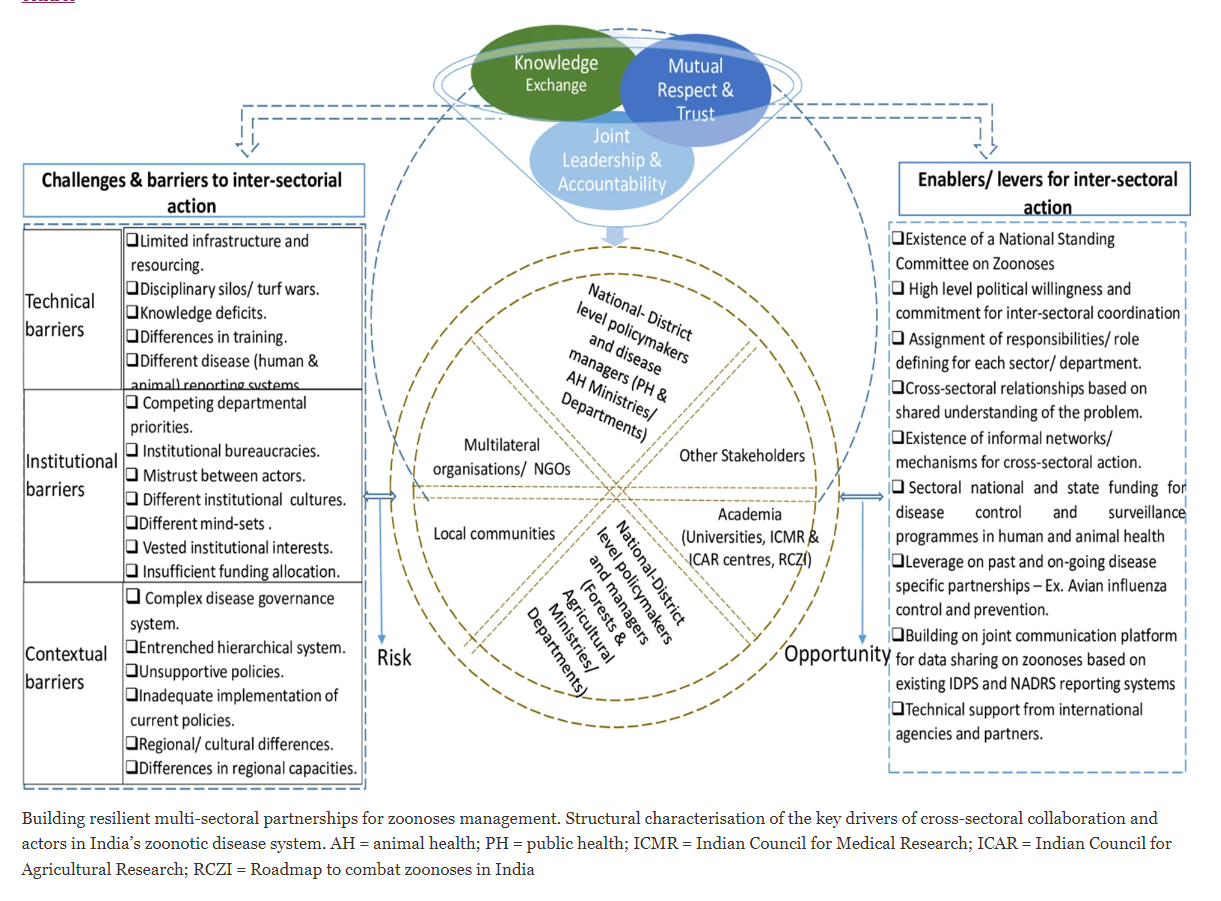Research Paper
F. A. Asaaga, J. C. Young, M. A. Oommen, R. Chandarana, J. August, J. Joshi, M. M. Chanda, A. T. Vanak, P. N. Srinivas, S. L. Hoti, T. Seshadri & B. V. Purse
06 August 2021

Research Paper
F. A. Asaaga, J. C. Young, M. A. Oommen, R. Chandarana, J. August, J. Joshi, M. M. Chanda, A. T. Vanak, P. N. Srinivas, S. L. Hoti, T. Seshadri & B. V. Purse
06 August 2021

There is a strong policy impetus for the One Health cross-sectoral approach to address the complex challenge of zoonotic diseases, particularly in low/lower middle income countries (LMICs).
Yet the implementation of this approach in LMIC contexts such as India has proven challenging, due partly to the relatively limited practical guidance and understanding on how to foster and sustain cross-sector collaborations.
This study addresses this gap by exploring the facilitators of and barriers to successful convergence between the human, animal and environmental health sectors in India.
A mixed methods study was conducted using a detailed content review of national policy documents and in-depth semi-structured interview data on zoonotic disease management in India.
Our findings point to the importance of strengthening existing national policy frameworks as a first step for leveraging cross-sectoral capacity for improved disease surveillance and interventions. This requires the contextual adaptation of the One Health approach in a manner that is sensitive to the underlying socio-political, institutional and cultural context that determines and shapes outcomes of cross-sector collaborative arrangements.
Asaaga, F.A., Young, J.C., Oommen, M.A. et al. Operationalising the “One Health” approach in India: facilitators of and barriers to effective cross-sector convergence for zoonoses prevention and control. BMC Public Health 21, 1517 (2021)
https://doi.org/10.1186/s12889-021-11545-7
Published: 06 August 2021